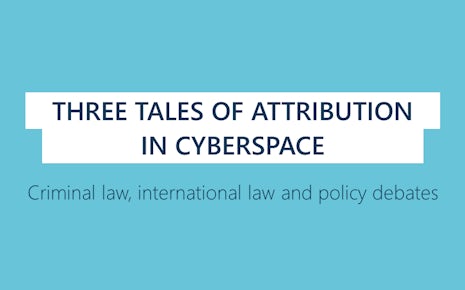Abstract
This paper examines the origins and current shape of Russia’s priorities in cyber diplomacy, as well as its efforts to shape global governance of the Internet. These are discussed with regard to a larger paradigm of Russia’s foreign policy since the late 1990s and its understanding of the digital domain as a threat to both the international order and the domestic regime. Russia has worked out a relatively consistent strategy of contestation of the liberal order in general and the liberal cyber regime in particular. Rhetorically, it builds on what it calls a ‘democratisation’ of international relations, of which the advocacy for the Open-Ended-Working-Group in global governance of the Internet is an example. It also relies on an interpretation of international law and international norms that challenges the notion of “the rules-based international order” as unlawful and resorts to regional arrangements which become a laboratory for global cyber initiatives. The core of Russia’s cyber rhetoric is the pre-eminence of the state and the guarding of information security, which see the politically and cyber-empowered individual as a potential threat to regime stability.
Key points
- Russia is often portrayed as a spoiler in cyber diplomacy but such portrayal ignores the sources of Russia’s cyber posture and its normative potential.
- While Russia has sought to counter the liberal order since the late 1990s, it previously lacked legitimacy, which it now tries to restore with its call for the Internet regulation.
- Russia conjures up in particular an understanding of international law and international norms which challenges the principle of “the rules-based international order” on the basis that it is “undemocratic.”
- It seeks to mobilise grievances in international society; however, the aim is not to democratise decision-making. Rather, it is to secure an equal place at the decision-making table.
- The advocacy for OEWG may therefore backfire: it has created a ‘cyber agora’ which can prove difficult to steer towards Russia’s cyber goals.
- The place of the individual in international cyber society remains the bone of contention. The liberal cyber regime should reinvigorate its holistic commitment to the individual as the centre of gravity.



